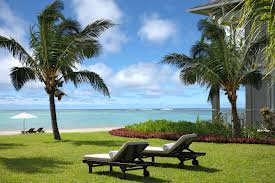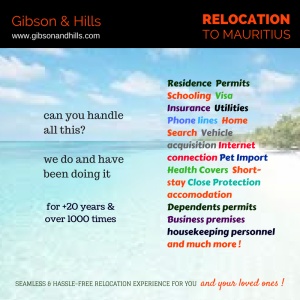
How to open a restaurant in Mauritius
 As a world-class tourist destination, Mauritius is inevitably an appropriate place to host a restaurant. Without doubt, this is one of the favourite businesses among foreign investors. French, Italian, Indian – you find it all on the island. The cuisine of a country is a reflexion of its culture, it is said.
As a world-class tourist destination, Mauritius is inevitably an appropriate place to host a restaurant. Without doubt, this is one of the favourite businesses among foreign investors. French, Italian, Indian – you find it all on the island. The cuisine of a country is a reflexion of its culture, it is said.
As Mauritius is a blend of cultures from different regions of the world, so is its cuisine. Over the years, the island has developed its own scents and flavours, but all are inspired from other parts of the world; Africa, India, Europe, etc. But this is not the subject of our article. And neither am I going to replace Gordon Ramsey. Let’s rather see how we go about setting-up a restaurant in paradise-island. This post is more to help those who want to invest in Mauritius find some preliminary information on the steps required to open a restaurant on the island.

The first thing to understand is ‘authorization’, i.e. license. If a restaurant has more than 40 seats, it is classified as a Tourism Enterprise, wherever it is situated. On the beachfront, deep inland, anywhere, it is classified as Tourism Enterprise. Hence, an application has to be made for a Tourism Enterprise License (TEL) to the Tourism Authority (TA). Below 40 seats, the restaurant has to apply for license from the Municipality of the town where it is situated, or from the District Council if in a village / rural area. Foreigners can only aspire to an investor permit if they invest in 40+ restaurants. The Board of Investment (BOI) does not recommend any Occupation Permit unless a Tourism Enterprise License is present. In fact, the other condition for Occupation Permit is the minimum investment of USD100,000. With such an amount, one will obviously look at 40 seats or more.
The location, a key element
The physical location is crucial. If you are planning to open a restaurant, you should first ensure that the building / space has all the required authorization; construction or development permit or Building & Land Use Permit (BLP). The BLP confirms that the building is legally authorized, has been constructed according to approved plan and can be utilized as a commercial space (not necessarily as a restaurant in first instance). Once you have this assurance, you can move forward to signing your rental agreement with the landlord. I always advise to have a conditional clause therein where, if the Tourism Enterprise License application is not approved, the tenant can withdraw from the rental obligation without much damage.
Note that I refer to rental and not ownership. Foreigners cannot purchase immoveable property, unless under certain circumstances. This is governed under the Non-Citizens (Property Restrictions) Act.
The location also need to cater for adequate parking space. According to Tourism Authority guidelines, one parking space for every 8 meter square the restaurant has, as surface area.
Legal structure
Fortunately, Mauritius is a very simple business jurisdiction. For any business,  commercial or professional activity, one would normally choose a domestic company as legal structure. This also applies to restaurant business; in fact, it is almost compulsory to have the restaurant registered under a company. First, because no investor can apply for Occupation Permit without a company and second because for Tourism Enterprise License purposes, a company is mandatory. The Tourism Authority or the Board of Investment will not even entertain applications if not done through a properly registered domestic company.
commercial or professional activity, one would normally choose a domestic company as legal structure. This also applies to restaurant business; in fact, it is almost compulsory to have the restaurant registered under a company. First, because no investor can apply for Occupation Permit without a company and second because for Tourism Enterprise License purposes, a company is mandatory. The Tourism Authority or the Board of Investment will not even entertain applications if not done through a properly registered domestic company.
Applying for the TEL
Application for TEL is made to the TA, through a precise set of documents. This includes, inter alia:
- Business Plan
- Company document (legal structure)
- Identity documents of directors and shareholders
- Site Plan
- Rental agreement
- Clearances from the Ministry of Health, Fire Services and the Police
An application is not considered as ‘complete’ unless all of the above are in the file. In the normal process, the application will be sent without clearances from the health department, fire services and police. These will be contacted by the Tourism Authority and will undertake their respective inspections once the Tourism Authority has received an application and contacted them. A report from each of the above bodies will be sent to Tourism Authority once inspection is effected. It is quite helpful for the applicant to stay in touch with all of them and to ensure that they communication are effectively despatched without delay. As consultants, we have initiate a good relationship with all those concerned and how well we know that without intervention in this ‘semi-internal’ communication process, the delays would be unbearable.
At this stage, the investor is not advised to start building or renovation works for his restaurant. The application for Tourism Enterprise License is based on a plan and concept, at the time of application. The Tourism Authority will issue a Letter of Intent, stating that it is favourable to such concept / plan and from there one can start spending the capital in the actual set-up. It has happened, in the past, that investors already spent huge amount in the set-up while waiting the outcome of their Tourism Enterprise License application. The license was not approved and investments lost. The Tourism Authority has reacted promptly and now issues a Letter of Intent. The base is approved but subject to certain conditions ; for example on the conditions that necessary clearances (health, fire, police, etc) are obtained. With a Letter of Intent in hand, the promoter can start building – while respecting applicable health & safety norms.
Once all is done and verified by the competent body, reports are sent to the Tourism Authority and the license is issued.
Other licenses
Depending on the concept and the promoter’s vision, a restaurant might also require additional licenses. For instance, a restaurant require a special license to sell alcoholic drinks. This license can be applied for to the Mauritius Revenue Authority (MRA). Again obtaining this license depends on other factors (again the health, fire and police clearance). No liquor license is issued until the TEL is obtained. The applicant also needs to have legal notices published in the press and the Government Gazette.
Halal certification is another element that requires due attention. Mauritius has an important Muslim population. As such halal certification is considered to be an advantage. Of course, if one is planning to sell alcohol, then halal is of no importance. Halal certification is issued by the Jummah Mosque or the Jamiat Ul Ulamah, two recognised authorities in the halal area. Halal is a certification that provides additional comfort to several sensible areas of a restaurant business, for example: meat quality, general food handling and manipulation, hygiene, cross-contamination, etc. With a halal certificate, a restaurant provides added guarantee, not only to the Muslim population but to people of other faiths also. Not surprising that in Mauritius, many prefer halal restaurants (despite not being Muslim).
We have provided you with a brief idea on what to prepare and what to expect when planning to open a restaurant in Mauritius. We cannot list all other underlying procedures and it wouldn’t be a brief and pleasant reading, despite being useful.
 At Gibson & Hills we provide you with a complete set of solutions for the setting-up and management of restaurants in Mauritius.
At Gibson & Hills we provide you with a complete set of solutions for the setting-up and management of restaurants in Mauritius.
We also help in establishing your operational bases and handle issues such as staffing, accounting set-up, stock and other control points & systems, Point of sale management and others. We have provided our services to several restaurants on the island, including those with international franchises. If you plan to venture in this business line, have a word with our team before placing your bets.
(c) May 2017

